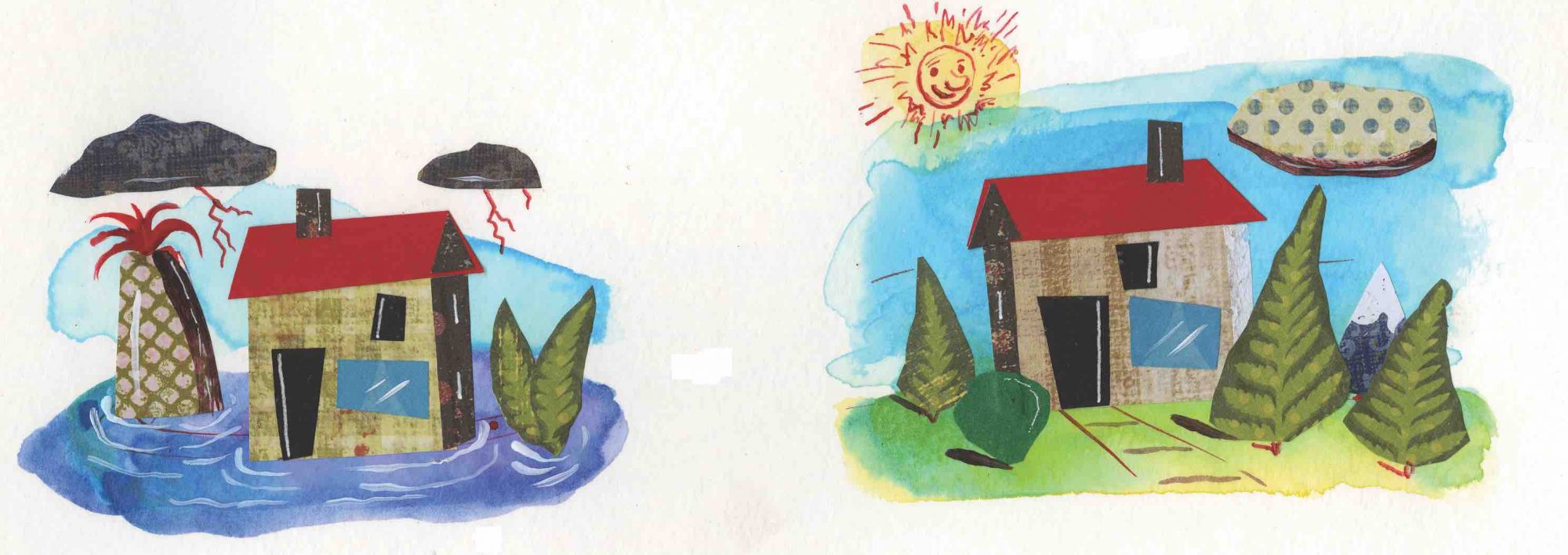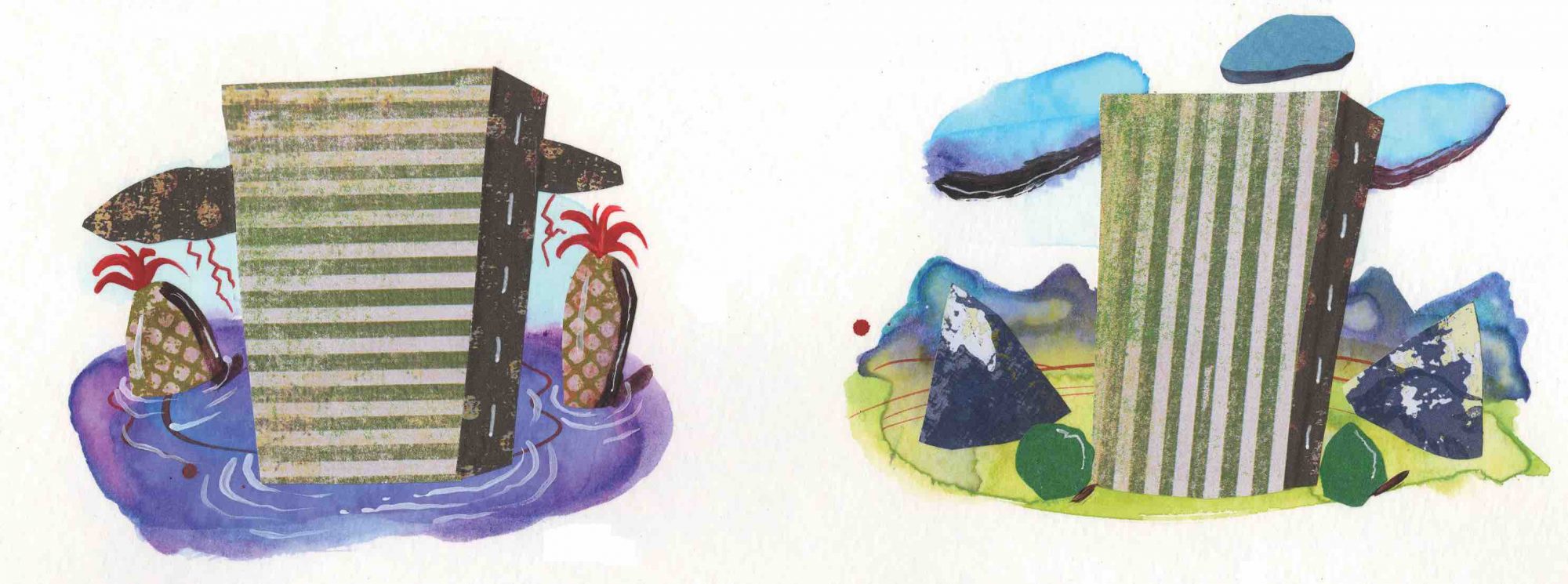
When Lisa Baroldi decided to leave Edmonton for Vancouver in February of 2010, she thought it marked the beginning of the next phase of her life. She was a 29-year-old consultant and owner of a growing company, Progress Unlimited. She had built up a solid professional résumé and an enviable network of friends and acquaintances in Edmonton, but she felt like she was ready for more. She figured that Vancouver, which was still basking in the reflected glory of its experience as the host of the 2010 Winter Olympics, was the right place to take her career to that next level.
She was wrong.
It’s not that Baroldi fell flat on her face when she moved to Vancouver. She found work, made friends and started to build a new life for herself. But she also didn’t feel like she was making enough meaningful progress in her life – instead, like so many other people her age, she was just effectively treading water. Vancouver, she says, is probably a wonderful place to be 20. But, as she discovered, people’s priorities change at 30, which is part of the reason she moved back to Edmonton late last year. “As soon as people hit 30, they run into a wall,” Baroldi says. “They have different life goals. While they can be achieved in Vancouver, they can’t be achieved as easily.”
That’s putting it mildly. Vancouver routinely ranks at the top of global livability rankings, and in the most recent iteration of The Economist’s “world’s most livable cities” rankings, it finished in third place, just slivers behind Melbourne and Vienna. But these rankings are informed by a rather curious definition of livability, one that privileges criteria like hygiene, culture, recreation, public transportation and personal safety above things like housing prices and a viable job market. It is, in other words, a ranking of livability for people who don’t have to actually worry about making a living.
For those who do need to make a living, Vancouver is just about the furthest thing from livable. That’s a direct result of the city’s turbo-charged real-estate market. It wasn’t that long ago that middle-class families could afford to buy middle-class homes in Vancouver-proper without selling their children into slavery, but those days are long gone. According to Royal LePage, the price of an average detached home reached $1,017,500 in the fourth quarter of 2011. Meanwhile, Vancouver real estate team Faith Wilson Group says the price tag on a place located on the west side of the city hit a staggering $1,656,986. The average price of a condominium, on the other hand, was $536,500 – more than $200,000 higher than the average price of a house in Edmonton.

What makes matters worse is that while real-estate prices in Vancouver look a lot like those in Hong Kong, Sydney and New York City, the incomes that people earn look more like those in Windsor, Ont. or Saint John, N.B. According to Statistics Canada, the median household income (that is, the mid-point at which half the population earns more and half earns less) in Vancouver in 2009 was $67,550. (In Edmonton, by way of comparison, the median household income for that year was $86,250.) As a result, it takes 94 per cent of the average pre-tax household income in Vancouver to cover the standard ownership costs of a two-storey home and nearly 91 per cent for a detached bungalow, assuming a 25-per-cent down payment on the mortgage, something that’s almost as rare in Vancouver as a sunny day in February.
That’s right – if the average Vancouver family tried to buy the average Vancouver home and maintain some semblance of financial discipline, they’d be left with just over $4,000 each year to spend on utilities, groceries, transportation and entertainment. And they’d still have to pay their taxes, too. It shouldn’t be surprising, then, that in addition to carrying the largest mortgages in the country, they’re among the provincial residents that also have the highest level of non-mortgage household debt in Canada.
Worse still is the fact that it’s having a kind of trickle-down effect on other aspects of the city’s economic, cultural and social life. Rising real-estate prices apply upward pressure on rental rates as property owners have to finance ever-larger mortgages, which in turn handcuffs the financial flexibility of those who don’t want to participate in the city’s real-estate orgy. With renters and owners alike having to spend more of their paycheques on shelter, that leaves less money for recreational activities and retail purchases. And while the high-end boutiques on Robson Street might be able to survive in this consumption-constrained environment thanks to the steady flow of tourists, small businesses in the rest of the city aren’t so lucky.

As Baroldi discovered, those negative effects can even have an impact on careers. “When you’re paying an exorbitant rent, it cuts into the lifestyle that you think a young urban creative professional should have,” she says. “And the problem is that those are the kind of events that you should be networking at in order to get the jobs. Finding that happy financial medium can be really challenging.”
Eventually, something’s going to have to give – that is, if it isn’t giving already. That’s the message that Sandy Garossino, a Vancouver-born (and Alberta-raised) lawyer and business owner, spent the recent Vancouver civic election trying to spread as an independent candidate. She contends that while there has been plenty of talk about the negative impact of the recently implemented and more recently rejected harmonized sales tax, it’s the city’s real-estate market that’s doing the real damage to local business. “I have two concerns: That we’re in a housing bubble, or that we’re not.”
Either way, she’s actively discouraged her own kids from waiting around to find out how it unfolds. “I tell my kids to go out and seek their fortune elsewhere,” she says. “You can’t do it here.”
In fact, Garossino thinks that this exodus of young talent is the biggest cost associated with Vancouver’s real-estate mania. “These are kids that could build Vancouver. They’re educated, ambitious and entrepreneurial, and they don’t think that Vancouver represents opportunity for them.”
According to Statistics Canada data that tracks inter-provincial migration patterns, an increasing proportion of those disaffected young Vancouver residents are finding their opportunities in Alberta.
In 2011, nearly 28,000 people left B.C. for Alberta. (Ontario, for comparison, saw 22,000 people head west to Alberta over the same period.) More important, though, is the fact that fewer than 25,000 Albertans headed the other way to B.C. That represents a significant reversal of an established pattern that saw an average of nearly 29,000 Albertans join their western neighbours each year between 2007 and 2010. In fact, five years ago, Alberta lost 33,000 people to B.C. Suddenly, what was once a brain drain has become a gain. “We educate them at huge taxpayer expense, entertain them for five years and then ship them to Alberta,” Garossino says. “We should be charging Alberta a surtax for educating their talent base at our expense.”
She’s not kidding. According to Todd Hirsch, ATB Financial’s senior economist, the loss of educated young people effectively amounts to an indirect transfer payment from one province to another. More importantly, perhaps, is the stimulating effect that these inter-provincial migrants can have on their new home. “They bring with them their schooling and provide a strong tax base from which to draw,” Hirsch says. “And because they are still years away from retirement, they are less likely to be big users of the health-care system.”
Realtor Robert McLeod has witnessed Alberta’s recent brain gain first-hand. He’s seen employees and tenants move to Edmonton from Vancouver, and they all tell their own versions of the same story about the punishing cost of real-estate and the absence of meaningful economic opportunities on the coast. “I just rented a place here to a midwife who was living in Richmond,” he says. “She couldn’t do what she wanted to do and do it on her own there – she had to live with her parents. And anything that she did as far as going out on her own only ended up setting her back.”
For the most part, he says, people come to Edmonton because they know it’s a place where they can – finally – get ahead. The fact that McLeod himself lives in Edmonton rather than Vancouver is telling. After all, he’s a realtor with a passion for sailing who can count Bob Rennie, Vancouver’s so-called “condo king” and one of the most influential players in its real-estate market, as his role model. So why in the world does he live here?
“In Edmonton, I was able to start small and work my way up,” he says. “In Vancouver, it’s big or bigger – you’re either a residential agent who sells houses or you do nothing.” Rather than competing with thousands of other residential agents in Vancouver, McLeod was able to create his own market within Edmonton and build a reputation around his expertise in it. “I was able to work my way up and find a niche that nobody else even knew existed,” he says. Could he have done that in Vancouver? “Absolutely not. I would have been completely crushed and creamed in that market.”
There’s little doubt that the combination of a punishing cost of living and a lack of meaningful economic opportunities is starting to drive people away from Vancouver and towards places like Edmonton, where the housing is cheaper, the jobs pay better and young people find themselves able to actually do things like save money and start building a future.
But if it was just a simple arithmetic equation that was driving people out of Vancouver and into Edmonton, what would stop them from continuing eastward in search of an even better cost-to-benefit ratio, to Saskatoon, perhaps, or Winnipeg?
The answer, according to Edmonton NextGen coordinator Christine Causing, is the city’s ability to make people feel like their contributions actually mean something.
“I know a lot of people who have moved away and come back because they loveEdmonton, and they feel so connected to their community here,” she says. “They can see that they actually make a difference and that it actually matters, and people pay attention to it.”
That’s a pretty stark contrast to what Baroldi says she encountered in Vancouver.”In Vancouver, you feel more like a cog in the wheel. You’re contributing to something that already exists. But here, you feel like you can create anything. It’s motivating. We’re making history.”
In this light, all those surface parking lots and empty streets and under-serviced neighbourhoods and things that aren’t happening in Edmonton – things that young Edmontonians routinely complain about, and things that don’t compare well to what Vancouver has to offer – can be seen as an opportunity instead of a blight. That’s how Baroldi sees it, anyway. “I’m a strong believer in the fact that you create community – if something fun isn’t happening, create it, and if there isn’t the right initiative, create it. But you can do that in Edmonton so easily. We have this pioneer mentality – we value entrepreneurship, and I never got that same feeling in Vancouver.”
It’s not just a feeling that she’s had, if the results of a recent study by the Vancouver Foundation are any indication. The organization, which works with all communities in the city, asked a wide range of people what they thought Vancouver’s biggest problems were, and it expected to find the usual suspects – homelessness, urban poverty and a lack of affordable housing – at the top of the list. Instead, it heard something quite different from Vancouverites: They felt isolated and alienated, and that they didn’t like it.
Baroldi didn’t either, which is part of the reason why she’s back in Edmonton. Still, she concedes that she hasn’t given up on Vancouver entirely. She’s still holding onto her apartment there, subletting it to someone for the time being, and she still finds herself drawn to the lifestyle on the west coast.
“It’s tough to let go of that city,” she says. “There’s something really magical about it. But professionally? I don’t know.” She pauses. “I’ve come here to make money so I can live there. How does that make sense?”









